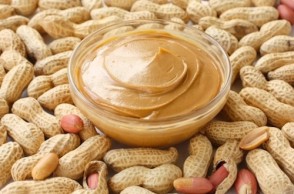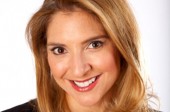Canceled Clients (4762)
Children categories

Train Your Body (438)
The show for fitness buffs or beginners. Expert guest from the American College of Sports Medicine (ACSM) discuss all areas of fitness, nutrition, athletics and sports medicine.
View items...
Staying Well (382)
RadioMD’s “talking” Health A-Z hosted by senior health correspondent, Melanie Cole, MS. Melanie interviews experts in the world of health, wellness, fitness and medicine.
View items...
Healthy Talk w/ Dr. Michael Smith (698)
Integrative physician, Michael A. Smith, MD is committed to providing listeners with the most current health information available.
View items...
Naturally Savvy (899)
Registered Holistic Nutritionist, Andrea Donsky and health expert Lisa Davis discuss their passion for living a natural, healthy lifestyle.
View items...
Eat Right Radio (48)
EatRight Radio, with experts from the Academy of Nutrition and Dietetics, discusses food and nutrition topics, healthy weight, allergies and health conditions, healthy aging, food safety and so much more. Give us 10-minutes and we'll give you the important information and expert advice from registered dietitian nutritionists to help you eat right, feel better, and live a healthier life. Hosted by Melanie Cole, MS.
View items...
Sharecare Radio (235)
Sharecare Radio, hosted by Sharecare’s own Dr. Darria Long Gillespie, SVP of Clinical Strategy at Sharecare, will appear live every Tuesday from 12 to 1 p.m. EST on RadioMD. Dr. Darria will break down the top health news of the week, pull in experts from around the country on a wide array of health topics and answer listeners’ live questions on all things health.
View items...
Wellness for Life (455)
On Wellness For Life Radio you will learn practical, easy-to implement tips to improve your life and start feeling better — the natural way.
View items...
The Wizard of Eyes (163)
Dr. Robert Abel Jr. talks about many of the important and unrecognized parts of our visual system which we so often take for granted. The show covers the usual common ocular disorders with an East/West approach to both prevention and therapy. The eye-brain connection is presented with information about memory retention, Alzheimer's, the myopia epidemic, and many more subjects. Dr. Abel discusses how the eye and vision are connected with remote parts of the body including your gut flora, musculoskeletal system, blood pressure, drugs and lifestyle. practical and simple health tips.
View items...
Code Delicious with Dr. Mike (135)
Code Delicious with Dr. Mike breaks all the rules. Unabashedly confronting the questions, concerns and conundrums that continually confuse both public and experts alike; Dr. Mike takes us on a tasty trip of inquiry.
View items...
CLEAN Food Network (98)
This show is a call to action for all the clean eating revolutionaries that care about their health and how and what they eat. Non-GMO, natural, organic . . . food the way nature intended. The clean food movement is huge and is growing exponentially. This companion program talks to experts in food preparation, healthcare, celebrities, and even those companies that care enough to provide the best, wholesome, organic foods and groceries.
View items...
Talk Healthy Today (213)
Looking to create your best self? Whether it’s good-for-you lifestyle hacks, smarter ways to supplement, or tasty tips to fuel optimal health, Talk Healthy Today brings you the latest research, tools, and common sense tips you need to get and stay healthy... starting today!
View items...
Be a Doer (17)
Be A Doer features master coach and TV personality John Abdo as he shares health and fitness tips aimed at getting you in shape – and keeping you there!
View items...The Power of Probiotics (3)
Probiotics is a major global industry. But like any industry, it had to have a beginning. Natasha Trenev is the daughter of an Eastern European family where the manufacturing of yogurt was a generational business. When Natasha emigrated to the US in the 1960’s, she brought with her 750 years of family experience with probiotics – and introduced the science (and the term itself) to her new country. Today, Natasha’s California-based Natren, Inc. is the recognized pioneer in probiotics and company founder Natasha Trenev has earned recognition as the Mother of Probiotics. Her more than 50 years of work in natural health is at the core of the unparalleled success of her company – and you will benefit from her depth of expertise in each and every episode of THE POWER OF PROBIOTICS.
Probiotics are live microrganisms that are commonly referred to as ‘friendly,’ ‘good’ or ‘healthy’ bacteria that function to help maintain the natural balance of organisms in the intestine. Throughout Natasha’s extensive work in the field of probiotics, she has always been amazed by how nature provides the very ‘good’ bacteria that can help overpower ‘bad’ bacteria to keep our digestive tracts functioning at peak performance. Properly cultivating friendly bacteria and ensuring their potency is at the core of the Natren Process. Natren is cited – by retailers, by the medical community and by consumers – as the best probiotic supplement available. Only Natren carefully chooses its probiotic cultures, formulates and manufactures its industry standard probiotics in its own plant and utilizes a specially-formulated oil matrix to protect probiotics bacteria to survive until they reach their destination in the upper small intestine. This is why only Natren is the most trusted probiotic supplement on the market. Truly, where other probiotic supplements promise – Natren Delivers.
To learn more about how probiotics can benefit your health, we are proud to introduce you to THE POWER OF PROBIOTICS with The Mother of Probiotics, Natasha Trenev.

Your Brain Health (24)
Noted Los Angeles-based neuroscientist and media personality Dr. Kristen Willeumier launches Your Brain Health with Dr. Kristen Willeumier, a podcast series that explores the latest news and information in the burgeoning science of brain health.
View items...Additional Info
- Segment Number 3
- Audio File sharecare/1510sc2c.mp3
- Featured Speaker Todd Wolynn, MD, IBCLC
- Guest Website Kids Plus
- Guest Facebook Account facebook.com/KidsPlusPediatrics
- Guest Twitter Account @DrToddWo
-
Guest Bio
 Dr. Todd Wolynn is President, CEO, and co-owner of Kids Plus Pediatrics — a cutting edge, independent practice in Pittsburgh, Pennsylvania. He also serves as Chief Executive Director of the nationally renowned Breastfeeding Center of Pittsburgh, and as CEO of the National Breastfeeding Center. An active member of the American Academy of Pediatrics, Dr. Wolynn is a nationally recognized expert on pediatric sleep, breastfeeding, immunization, practice management, and the use of social media in pediatrics.
Dr. Todd Wolynn is President, CEO, and co-owner of Kids Plus Pediatrics — a cutting edge, independent practice in Pittsburgh, Pennsylvania. He also serves as Chief Executive Director of the nationally renowned Breastfeeding Center of Pittsburgh, and as CEO of the National Breastfeeding Center. An active member of the American Academy of Pediatrics, Dr. Wolynn is a nationally recognized expert on pediatric sleep, breastfeeding, immunization, practice management, and the use of social media in pediatrics.
- Length (mins) 10
- Waiver Received No
- Host Darria Long Gillespie, MD, MBA
Additional Info
- Segment Number 2
- Audio File sharecare/1510sc2b.mp3
- Featured Speaker Tanya Altmann, MD, FAAP
- Book Title Mommy Calls; The Wonder Years; Caring For Your Baby and Young Child, Birth to 5
- Guest Website Dr. Tanya
- Guest Twitter Account @DrMommyCalls
-
Guest Bio
 A leading medical authority for the popular press and entertainment industry, Sharecare Advisory Board member Dr. Tanya Remer Altmann is a best-selling author, parenting expert and media spokesperson. A working mother and UCLA-trained pediatrician who practices in Southern California, Dr. Tanya is a designated spokesperson for the American Academy of Pediatrics, communicating complicated medical issues into easily understood concepts. Dr. Tanya has served on the board of the National Association of Medical Communicators and the executive board of the American Academy of Pediatrics’ Committee on Communications and Media. She completed her internship and residency at UCLA, received her medical degree from the Sackler School of Medicine, and her Bachelor of Arts degree from Claremont McKenna College.
A leading medical authority for the popular press and entertainment industry, Sharecare Advisory Board member Dr. Tanya Remer Altmann is a best-selling author, parenting expert and media spokesperson. A working mother and UCLA-trained pediatrician who practices in Southern California, Dr. Tanya is a designated spokesperson for the American Academy of Pediatrics, communicating complicated medical issues into easily understood concepts. Dr. Tanya has served on the board of the National Association of Medical Communicators and the executive board of the American Academy of Pediatrics’ Committee on Communications and Media. She completed her internship and residency at UCLA, received her medical degree from the Sackler School of Medicine, and her Bachelor of Arts degree from Claremont McKenna College.
- Length (mins) 10
- Waiver Received No
- Host Darria Long Gillespie, MD, MBA
Additional Info
- Segment Number 5
- Audio File healthy_talk/1510ht2e.mp3
- Organization Life Extension
- Guest Website Healthy Talk MD
-
Transcription
RadioMD Presents: Healthy Talk | Original Air Date: March 11, 2015
Host: Michael Smith, MD
You're listening to RadioMD. It's time to Ask Dr. Mike on Healthy Talk. Call or email to ask your questions now. Email: AskDrMikeSmith@RadioMD.com or call: 877-711-5211. The lines are open.
Alright. As you may know, I receive email questions and I just print them out, right? By the way, if you want to ask me a question and you'd like to hear your question read on the air live, send it to me. AskDrMikeSmith@RadioMD.com. It's pretty simple.
I've noticed over the past couple weeks that I'm getting more and more questions about product safety and product quality and I think that those are always legitimate questions. I always encourage those types of questions but I think a lot of it is coming from the fact that the New York Attorney General recently did some testing of herbal supplements at some major chains and found that the active ingredients weren't in there. There were ones that shouldn't be in there. So, I think that's where a lot of that's coming from.
Here is another question that said, "Can you comment further on the New York Attorney General debate about DNA supplement testing? Who's kidding who?" is the question.
Well, okay. I'm not going to speak—and I need to be careful about this—I'm not going to speak to the motivation of what's driving the New York Attorney General's thought process here or what's driving him to test this. I'm just not going to speak to that, but what I can speak to is the testing method that's been used and I've mentioned this before so I don't want to spend too much time on this, but I think it's worth saying again. It's an opportunity to teach and this is awesome.
So, there is a really cool and awesome way to test raw ingredients before it becomes a product. Okay? So, let's go back to pomegranate. Why not? I love it. If you're a listener of Healthy Talk and whether you listen live or you do the on-demand at RadioMD, you know that I talk about pomegranate a lot because I love it. I've told you my story as a child living with pomegranate trees. They were in the back yard in California. Anyway, so let's say I want to make a pomegranate extract. Obviously, I'm starting with what? Pomegranates. So, that's the raw material—pomegranates.
Well, there is an awesome way to test that raw material. So, let's say there's a pomegranate extract provider who I'm interested in using to make my capsules. I call them up and I say, "You know, you've got a pretty good price on your pomegranate raw material. I'd like to make a product out of it, but I want to test it first. I want to make sure that the powdered pomegranate stuff—the extract you send me—is really potent pomegranate. I want to make sure it's all pomegranate." So, a good way to test that is what is called "DNA barcoding". It's basically just looking for pomegranate DNA. I mean, in the simplest terms.
There's this large database of all the plants—not all, but many of the plants—on earth and their DNA signatures. So, I can do this DNA test where I look at this raw material—this raw pomegranate—and I can do a DNA test and I can compare that to this database and say, "Oh, yeah. Good. There's pomegranate in there. There's a lot of pomegranate in there. That's good raw material." So, it's just looking at the DNA and comparing it to this database that's been started and preserved of all the plants and all the extracts. So, it's easy. Nice. DNA barcoding. Works great. But it only works great for raw materials because now I've got to take that raw pomegranate and turn it into a capsule that can be absorbed; that can have a shelf-life. I mean, everything has to be processed a little. The least amount of processing we do, the better, but everything has to be processed. I've got to get that raw bucket of extract and turn it into a capsule. When I do that, when I take that raw material that tested high for pomegranate on the DNA barcoding, and then I run it through my machine to produce this capsule, that processing part will degrade a lot of the pomegranate DNA. Not the phytochemicals and stuff, but the DNA itself.
DNA is a molecule that does not withstand processing very well at all. That's well-known, by the way. So, DNA barcoding is great for the raw material testing. It's not the appropriate test for the final product because I'm going to go to that final product and I'm going to look for the pomegranate DNA, but it's not in there. It got degraded. That doesn't mean there aren't pomegranate antioxidants in there. It just means the DNA was degraded, so if you're only using DNA barcoding to test the final product, your final result will be, "Dr. Mike, your pomegranate has no pomegranate." And, that's not true because you're doing the wrong test. DNA barcoding is not appropriate for final testing.
Why the New York Attorney General decided to do DNA barcode testing for a final product, I don't know. I can't answer that, but I know it was the wrong test and I'm going to leave it at that.
Okay. Let's go on to the next question and I know where this next question came from.
"Are there vegan supplements available?"
I'm pretty sure this came from Sheldon Baker. He's my producer and he's a vegan. He's always asking me questions about vegan products. Interesting story. Sheldon's my producer. He's also the PR director at Life Extension and does a great job. Good friend of mine. He went vegan for some health issues--cholesterol, basically--and is doing well on it. Loves it. We go to New York a lot, L.A., Chicago. We go to restaurants and I always make fun of him because I order in about 1 second because I'm really easy. I mean, I eat anything. And it takes him like 20 minutes to order something. But, hey, the restaurants are doing better about producing vegan food, vegan menus, so it's getting easier.
But, I'm pretty sure this is Sheldon's question, "What about vegan supplements? Are they available?" Yes. You know, most of your whole food based companies—companies that produce products like capsules and soft gels that preserve the whole plant--like taking pomegranate and trying to preserve as much of the pomegranate as they can. So in a sense, you're almost taking pomegranate in a capsule form. It's whole food based.
I work for a company, by the way, Life Extension, that doesn't do that. We're an extraction based company. We take the pomegranate—that raw material—and we pull out those best antioxidants and concentrate them in the final capsule which is another reason why DNA barcoding wouldn't work for us, right? Because we're pulling out the antioxidants. But, there are companies that focus on whole food based products. Nature's Made has a line. NOW is a company. Garden of Life is a company and most of those whole food based type manufacturers or companies have vegan lines. I would stick with those companies because they're awesome companies. So, there are vegan products out. You've got to do just a little bit more research.
One of the other common questions I get with vegan products is, "I want to take Omega-3s, but I obviously don't want to do fish. What are some other ways I can, if I'm a vegan, get Omega-3s?" Obviously, there are plant-based Omega-3s like flax. Chia seed is a more popular one today, but more and more we're seeing companies produce vegan Omega-3s with algae which is really awesome because it's the algae that produce the Omega-3s in the first place, right? Algae produce oils. They produce polyunsaturated Omega-3s. The fish eat the algae and then, eventually, if you want, you eat the fish. That's how you get the Omega-3s. So, more and more companies are going back to the source of the Omega-3, the algae.
So, there are more and more algae-based Omega-3 products for vegans. Check out those whole food based companies, Sheldon, because I know that's who sent this question in. Nature's Made, NOW, Garden of Life. They have great vegan lines.
This is Healthy Talk on RadioMD. I'm Dr. Mike. Stay well. - Length (mins) 10
- Waiver Received No
- Internal Notes NO GUEST
- Host Mike Smith, MD
Additional Info
- Segment Number 4
- Audio File healthy_talk/1510ht2d.mp3
- Organization Life Extension
- Guest Website Healthy Talk MD
-
Transcription
RadioMD Presents: Healthy Talk | Original Air Date: March 11, 2015
Host: Michael Smith, MD
RadioMD. It's time for you to be a part of the show. Email or call with questions for Dr. Mike now. Email: AskDrMikeSmith@RadioMD.com or call: 877-711-5211. What are you waiting for? The doctor is in.
So, I just had a conversation with Cheryl Myers about vaginal dryness. We talked about sea buckthorn and the oils that are in sea buckthorn which is an Omega-7, mostly.
A listener asked the question about, "Do I need to supplement daily with Omega-7s?" and I wanted to talk a little bit more about Omega-7s because they really are a unique type of healthy fat.
We hear about Omega-9. We hear about Omega-6. We hear about, obviously, Omega-3s, but I don't think too many listeners probably have heard of Omega-7. By the way, technically speaking, in theory, you could have all kinds of different types of omega fats. The "omega" just simply means that there's a double bond somewhere and the number is where that double bond happens--the first double bond. Unlike the Omega-9s, the Omega-6s and the Omega-3s, Omega-7 is a monounsaturated fat. So, it doesn't have multiple double bonds in the fat. It just has one at the 7th carbon. That's it; whereas, the other omegas are polyunsaturated.
So, it's a monounsaturated omega fat which makes it unique right there, but we know from some recent research that a better name for Omega-7, is palmitoleic acid (the official fat name). But, a better way to describe Omega-7 is a lipokine. Now, what do I mean by that? Well, "lipo" means "fat" and "kine" usually means some sort of messenger. So, a lipokine is a fat-based messenger in the body and that's at least where it seems the research is going with this. There are studies looking at Omega-7s, obviously, in the urinary and genital/urinary tract. We just talked about vaginal dryness with Cheryl Myers. You know, we're looking at Omega-7s and metabolic syndrome, appetite control and what's interesting is the research is showing that this monounsaturated fat is really more like a messenger in the body, almost like a fat-based hormone, if you will. It helps to regular mucosal lining, hormone production—specifically hormones related to hunger. Cheryl had made the point that this really is maybe the next nutrient that's going to be the big star in the industry. I don't think she's that far off on that. I think we're going to hear more and more about the Omega-7 lipokine.
As a matter of fact, at Life Extension, we did an article on the benefits to metabolism with Omega-7s, specifically what's referred to as metabolic syndrome. That's really a collection of metabolic derangements in your system. Central obesity (belly fat) basically; blood pressure issues; sugar issues; low good cholesterol; high triglycerides (the bad fats floating around in your blood). All of that put together is called "metabolic syndrome" and Omega-7, because of this messenger type role, was able to restore and correct a lot of those metabolic derangements in the metabolic syndrome.
So, I agree with Cheryl. I think this is a nutrient to keep an eye out on specifically in cardiovascular health, metabolic syndrome, weight control and then, based on what Cheryl talked about, vaginal dryness because of its effect on membrane integrity—mucosal membrane integrity. So, really, it's an exciting nutrient and so look out more for Omega-7s.
You know, the question about whether you should supplement daily with it, I mean, you know, Cheryl's a big proponent of sea buckthorn extracts which is where you find the Omega-7s. So, yes, go for it daily. There's nothing wrong with that. I don't think we should replace, at least yet, the Omega-3s with 7s. Don't do that. Omega-3s are still the big ones we want to do every day. I consider the Omega-3s foundational fats, healthy fats. Where Omega-7 is going to play out and where it's going to fall in that overall regimen-building structure, I don't know. But, we're going to keep an eye out on it. Definitely, if you have potential appetite issues, weight issues, metabolic syndrome, yes, you might want to take it daily. But, just for a general supplement, not sure yet. So, we'll see where it plays out. That's Omega-7, palmitoleic acid. A lipokine. A very unique monounsaturated omega fat.
Okay. Next question. Alright.
"How can I ensure product safety?"
You know, I think I am noticing more and more questions related to quality. "How can I trust what's on the label (the brand)?" "How can I trust the claims?" I had a question recently about structure function claims on a label. "Pomegranate is good for the heart." I mean, how do we trust that? Where does that come from? I explained that it is connected to research.
It is FDA regulated—those kinds of claims. So, I think a lot of these types of questions are coming from what happened in New York recently with the Attorney General there testing herbal supplements at a GNC. I think it was Target, Walmart, and Walgreen's. I can't remember every store he looked at and we've talked about that on this show. How he, obviously, has an agenda. He's very biased. He didn't use the right testing mechanisms or testing procedures to check the quality of those herbal supplements.
So, I think that's where this is all coming from. As a matter of fact, I'm looking down my question list and there's one about, "Can you comment further on the New York Attorney General debate about DNA bar code testing?" So, maybe I'll get to that here in a moment. So, let me go back to this question, though. So, that's where I think these questions are coming from, which is fine. I think this is awesome. I see this as an opportunity to teach about product quality; how to choose a quality product; how to look for a quality product; what do good companies who spend a lot of time focusing on quality—what are they doing to ensure safety, to ensure their claims? The more you look into this, you realize that there are many, many companies in this industry producing high-quality, effective, safe supplements. I mean, here's what it comes down to.
Listen, there are some bad guys out there. Or, bad gals I could say, too, right? I mean there are some companies that don't have your best interest in mind. They have the almighty dollar in mind. But that's in every industry. There are those companies that are producing unsafe products; that are mixing their products with drugs and stuff like that. You see that in some of the body-building products, weight loss products. They should be found and prosecuted to the full extent of the law. Absolutely. But, that's a small, small minority of companies in this industry.
So, how can I ensure product safety? I think there are two things to do. I've talked about this one before and it's the Certificate of Analysis. So, most of your companies have been doing this a long time. If you want a good list of those companies, go check out my book, The Supplement Pyramid. There's in the appendix in the back, a list of all the companies I like that I work with they all produce something called a Certificate of Analysis. What this is, it's a lab that looks at the raw materials. It's a lab that looks at the final product and they produce this document that shows that, "Yes. What the label says should be in there is in there and other things like microbes and metals and contaminants aren't." It's document proof that that is a safe product and the label is correct. You just ask for it.
I mean, I work here at Life Extension. You just ask us, "Where is your Certificate of Analysis for your fish oil?" "Here it is. We'll send it to you. We'll fax it to you." It's easy to get. Certificate of Analysis. So, that's the first thing.
I think from there, too, there's dosing. Right? There's appropriate dosing for supplements. How do you know that? That's where it's good to have a doctor that you're working with. We have Life Extension health advisors that can help you figure out the appropriate dose because everything has an appropriate dose. So, Certificate of Analysis and dosing for product safety.
This is Healthy Talk on RadioMD. I'm Dr. Mike. Stay well. - Length (mins) 10
- Waiver Received No
- Internal Notes NO GUEST
- Host Mike Smith, MD
Additional Info
- Segment Number 3
- Audio File healthy_talk/1510ht2c.mp3
- Featured Speaker Cheryl Myers, RN
- Guest Website Europharma
-
Guest Bio
 Cheryl Myers, RN, is an integrative health nurse, author, and expert on natural medicine.
Cheryl Myers, RN, is an integrative health nurse, author, and expert on natural medicine.
She is a nationally-recognized speaker who has been interviewed by the New York Times, Wall Street Journal and Prevention Magazine. Her many articles have been published in such diverse journals as Aesthetic Surgery Journal and Nutrition in Complementary Care, and her research on botanicals has been presented at the American College of Obstetrics and Gynecology and the North American Menopause Society.
Ms. Myers is the head of Scientific Affairs and Education for EuroPharma. - Length (mins) 10
- Waiver Received Yes
- Host Mike Smith, MD
Additional Info
- Segment Number 2
- Audio File healthy_talk/1510ht2b.mp3
- Featured Speaker Cheryl Myers, RN
- Guest Website Europharma
-
Guest Bio
 Cheryl Myers, RN, is an integrative health nurse, author, and expert on natural medicine.
Cheryl Myers, RN, is an integrative health nurse, author, and expert on natural medicine.
She is a nationally-recognized speaker who has been interviewed by the New York Times, Wall Street Journal and Prevention Magazine. Her many articles have been published in such diverse journals as Aesthetic Surgery Journal and Nutrition in Complementary Care, and her research on botanicals has been presented at the American College of Obstetrics and Gynecology and the North American Menopause Society.
Ms. Myers is the head of Scientific Affairs and Education for EuroPharma. - Length (mins) 10
- Waiver Received Yes
- Host Mike Smith, MD
Additional Info
- Segment Number 1
- Audio File healthy_talk/1510ht2a.mp3
- Organization Life Extension
- Guest Website Healthy Talk MD
- Length (mins) 10
- Waiver Received No
- Internal Notes NO GUEST
- Host Mike Smith, MD
Additional Info
- Segment Number 4
- Audio File train_your_body/1510tb2d.mp3
- Featured Speaker Edward M. Phillips, MD
- Organization ACSM
-
Guest Bio
 Edward M. Phillips, MD, is Assistant Professor of Physical Medicine and Rehabilitation at Harvard Medical School and is Founder and Director of The Institute of Lifestyle Medicine (ILM) at the Joslin Diabetes Center. In his work at the ILM, he has directed 12 live CME programs starting in India in 2006 and continuing with twice yearly courses sponsored by the Harvard Medical School Department of Continuing Education. He is course director of a suite of seven online CME modules in Lifestyle Medicine completed by over 8,500 clinicians from 115 countries.
Edward M. Phillips, MD, is Assistant Professor of Physical Medicine and Rehabilitation at Harvard Medical School and is Founder and Director of The Institute of Lifestyle Medicine (ILM) at the Joslin Diabetes Center. In his work at the ILM, he has directed 12 live CME programs starting in India in 2006 and continuing with twice yearly courses sponsored by the Harvard Medical School Department of Continuing Education. He is course director of a suite of seven online CME modules in Lifestyle Medicine completed by over 8,500 clinicians from 115 countries.
Additionally, Phillips is a Fellow of American College of Sports Medicine (FACSM) and serves on the executive council that developed and leads the Exercise is Medicine™ global initiative. He is co-author of ACSM’s Exercise is Medicine™, The Clinician's Guide to the Exercise Prescription (Lippincott, 2009) and is chair of the Exercise is Medicine Education Committee. He serves on the Advisory Board of the American College of Lifestyle Medicine and on the Health Sector of the United States National Physical Activity Plan.
He is Adjunct Scientist at the Jean Mayer United States Department of Agriculture, Human Nutrition Research Center on Aging at Tufts University in the Nutrition, Exercise Physiology and Sarcopenia Laboratory where he works as study physician and investigator on several studies that address the areas of exercise physiology, resistance training in the elderly, body composition, and nutrition. He is site PI for the Health Resource Service Administration Preventive Medicine Training Grant (2010-2013) (2014-2018) educating Yale Preventive Medicine residents in Lifestyle Medicine. Phillips has published over 60 scientific publications.
Phillips is an active clinician and researcher who speaks and consults nationally guiding a broad based effort to reduce lifestyle-related death, disease, and costs through clinician directed interventions with patients. His medical school, SUNY Buffalo School of Medicine and Biomedical Sciences, honored him with its Distinguished Alumni Award for his accomplishments in Lifestyle Medicine. The President’s Council on Fitness, Sports and Nutrition has recognized both Dr. Phillips and the ILM with its Community Leadership Award. He appears on national media including Good Morning America, ESPN radio, Huffington Post, Slate, and in Time Magazine. -
Transcription
RadioMD Presents: Train Your Body | Original Air Date: March 3, 2015
Host: Melanie Cole, MS
RadioMD. RadioMD.com. Your trainer, Melanie Cole, is here to motivate and help you perform. It's time now for Train Your Body.
MELANIE: Strength training is a pretty generic term. What does it mean? Does it mean lifting heavy weights and those guys you see in the free weight room grunting and sweating? Does it mean just lifting a little bit like you see the ladies in the aerobics room with their three pound dumbbells? What does strength training really mean? What exercises give you the best benefit? How often should you do it? All of these things are about to be answered by my guest, Dr. Edward Phillips. He's Assistant Professor of Physical Medicine and Rehab at Harvard Medical School. He's also the founder and director of the Institute of Lifestyle Medicine at the Joslin Diabetes Center.
Welcome to the show, Dr. Phillips.
DR. PHILLIPS: Thank you, Melanie.
MELANIE: So, strength training. If someone was to come to you and say, "I want to strength train. What does that mean and how do I start?" What do you tell them?
DR. PHILLIPS: Great. So, let me back up and say I'll just give you what the Federal recommendations are so you understand why all Americans are asked to participate in this. There is a physical activities guideline for Americans that most famously calls for all Americans to be moving 2.5 hours a week, 150 minutes, and we're working really hard to get there. Getting out and doing that brisk walk. The other part of it is that twice a week, we're recommended to do a routine of, it's actually called "resistance training". Resistance training means like anything where you're pushing your muscles against some sort of a resistance. Strength is one outcome. You could do that through lifting weights or through pulling on a resistance band. You can do it with doing body weight training. You can't see me right now, but not only am I standing up, I'm going up and down on my toes and I'm working my calves. I'm just working against gravity. So, what we're looking for is twice a week, and we try to ask you, because of muscle soreness, not to do them two days in a row. So, that's where we're going to start. We're going to try to get you working the major muscles of your body twice a week.
MELANIE: Okay. So, major muscles being what and what kinds of exercises? Squats? Lunges? Do bicep curls count? Push-ups against the counter in the kitchen? Do you have to take that a half an hour or 45 minutes and actually go through a routine? Tell us about what you actually do, the semantics of it all.
DR. PHILLIPS: Sure. So, the full prescription would be that you're going to work all the major muscle groups. For instance, if I'm going up and down on my toes, I'm working my lower leg. If I start doing squats, I'm working my thighs, including the quads in the front and the hamstrings in the back. If I start bringing my legs out to the side balancing on the other leg, I'm starting to work my core and my butt muscles—my glutes. If I start to do to the plank position where it's sort of the top of a push-up, I'm working my core and I might be holding it. If I start to do push-ups from that plank position, I'm obviously working my upper body. So, all of them are good. Obviously, we want you to do all of them, but in answer to your question, even if you did a little bit, it's better than nothing. So, bicep curls are great. What's interesting about our muscles is that they respond specifically to the stress. What that means is, if you do bicep curls, you'll be able to do bicep curls. It's not going to help you run, or, not directly. It's not going to help you with the strength of your back. The muscles will respond to what you do. So, if you say, "Well, I want to have strong legs, strong back, strong arms," you're going to work out all of them. So, you're getting the idea that you're trying to do a general routine of your legs, your arms, your back, and you can do this a couple of times a week.
MELANIE: So, for people that don't know what exercises work what muscle groups because, yes, the muscles react specifically. So, you do something for that muscle and it builds on itself and then it will be stronger at that particular movement or that particular muscle group movement, but how do you know that doing a row works those lats? How do you know that planking works the core if you're not a trainer or you're not somebody who has been doing this a long time?
DR. PHILLIPS: So, two ways of looking at it. One of them is that when I prescribe exercise to my patients, the most common early conversation is, "So, Melanie, what would it take to get you to walk a little bit more?" If I saw you walk in and you're walking out, we know you can do that. You learned this when you were about 1 year old. We've got that. When you need to do strength training, if you haven't been trained, we, actually, will likely send you to some sort of professional. If there is a medical diagnosis, I might be able to send you to a physical therapist. I might want to find a well-credentialed personal trainer, an exercise physiologist—someone that can train you. That works. There are lots of people that will go turn on their iPhone and download a video of some exercises going on. That's one direction.
Another one for the listeners is, my field is rehab medicine and we talk about function. So, what I'm going to do is ask you to strengthen up the parts that need strengthening. Very simply, if you're having trouble getting out of a chair, why not get out of a chair a lot of times? In other words, if you're having trouble getting out once, the prescription is, with a little bit of support, we're going to get you in and out of a chair 5 times. The muscles that you need to work, you do not need to know the names of. I can tell them to you, but you're going to be working the extensors of your hips and your core in order to rise out of the chair. If you can rise 5 times in a row, you may start pushing off with your arms, and you get to the point where you don't even need to push off, those muscles, that functional activity is going to be improved so when you go home and you need to get off the toilet, which is a challenge for many older adults, you can do it.
So, that's an approach of sort of functional rehab or rehab or functional strengthening to do the stuff that you need to do in order to maintain that activity; in order to improve that activity.
MELANIE: That's great information, too, Dr. Phillips, because on the American College of Sports Medicine's fitness trends for the years as they go on, functional fitness training which is exactly what you're talking about, always rises up on the list and that is getting up out of a chair so that you can get up off the toilet. Reaching into your trunk to grab your groceries so that you can reach into your trunk and grab your groceries or lift your grandchildren or do any of those things that make for that function daily to increase your ability to do what you do every day.
So, what about some of those myths that go on with strength training? Women and resistance training--women specifically. I don't know if they're still saying that, but they used to say to me, I've been in the business 25 years, "Well, I don't want to bulk up. I don't want to look like one of those German swimmers." Those ladies work hard and eat like a bird. You know? You can't look like that that easily.
DR. PHILLIPS: Yes. So, the kind of strengthening that needs to go on and the difference between no strength training and modest improvements, meaning that you're stronger, but you have not yet hypertrophied your muscles. That's fancy talk for your muscles have grown larger. In women, seeing the definition is way down the line. If you're just starting to do the strengthening, your muscles are going to get much, much stronger long before they get bigger and you're going to feel much better. Aesthetically, you'll still be improved without sort of bulking up. It's interesting you talked about the German swimmers because when I think about sort of an attractive, strong woman, you know, we've got our First Lady going sleeveless and people talk about aspiring to have Michele Obama arms in a positive way. Like "I want to show a little bit of..."
MELANIE: You want that muscle. You want that definition.
DR. PHILLIPS: Absolutely.
MELANIE: And, she's a bigger woman, too, and yet she is able to have that real nice tone that just looks lovely. So, ladies, you know he's saying, "Don't be afraid of that." Lifting 3 pounds, 5 pounds, 8 pounds, 10, 12's--they're not going to give you these bulky, ugly arms. You can have nice toned arms. So, in the last 30 seconds, Dr. Phillips, wrap it up for us.
DR. PHILLIPS: So, I would say everybody needs to be doing some sort of resistance or strength training. It's going to improve your function. It's going to improve your aesthetics. It's going to improve all sorts of health metrics. You're going to feel better about yourself, have less pain and the more people that do it, the healthier our country would be.
MELANIE: Absolutely. Great information. So, the basics are here, just get out and do it. You want to add strength training into your day. Lift that milk jug 15 times, pick up your children, squat a little, lunge a little. You know, lift your legs, move around. Do core planking, sit on the ball and do some pelvic lifts. Do your bicep curls and your rows and your abdominal exercise. Add them all in because it's all going to add up and make you stronger and more fit and healthier and it feels good and you pants fit better.
So, if any of the other reasons aren't good, well, that last one's probably the best.
This is Melanie Cole. You're listening to Train Your Body right here on RadioMD. Thanks for listening and stay well. - Length (mins) 10
- Waiver Received No
- Host Melanie Cole, MS
Additional Info
- Segment Number 3
- Audio File train_your_body/1510tb2c.mp3
- Featured Speaker Edward M. Phillips, MD
- Organization ACSM
-
Guest Bio
 Edward M. Phillips, MD, is Assistant Professor of Physical Medicine and Rehabilitation at Harvard Medical School and is Founder and Director of The Institute of Lifestyle Medicine (ILM) at the Joslin Diabetes Center. In his work at the ILM, he has directed 12 live CME programs starting in India in 2006 and continuing with twice yearly courses sponsored by the Harvard Medical School Department of Continuing Education. He is course director of a suite of seven online CME modules in Lifestyle Medicine completed by over 8,500 clinicians from 115 countries.
Edward M. Phillips, MD, is Assistant Professor of Physical Medicine and Rehabilitation at Harvard Medical School and is Founder and Director of The Institute of Lifestyle Medicine (ILM) at the Joslin Diabetes Center. In his work at the ILM, he has directed 12 live CME programs starting in India in 2006 and continuing with twice yearly courses sponsored by the Harvard Medical School Department of Continuing Education. He is course director of a suite of seven online CME modules in Lifestyle Medicine completed by over 8,500 clinicians from 115 countries.
Additionally, Phillips is a Fellow of American College of Sports Medicine (FACSM) and serves on the executive council that developed and leads the Exercise is Medicine™ global initiative. He is co-author of ACSM’s Exercise is Medicine™, The Clinician's Guide to the Exercise Prescription (Lippincott, 2009) and is chair of the Exercise is Medicine Education Committee. He serves on the Advisory Board of the American College of Lifestyle Medicine and on the Health Sector of the United States National Physical Activity Plan.
He is Adjunct Scientist at the Jean Mayer United States Department of Agriculture, Human Nutrition Research Center on Aging at Tufts University in the Nutrition, Exercise Physiology and Sarcopenia Laboratory where he works as study physician and investigator on several studies that address the areas of exercise physiology, resistance training in the elderly, body composition, and nutrition. He is site PI for the Health Resource Service Administration Preventive Medicine Training Grant (2010-2013) (2014-2018) educating Yale Preventive Medicine residents in Lifestyle Medicine. Phillips has published over 60 scientific publications.
Phillips is an active clinician and researcher who speaks and consults nationally guiding a broad based effort to reduce lifestyle-related death, disease, and costs through clinician directed interventions with patients. His medical school, SUNY Buffalo School of Medicine and Biomedical Sciences, honored him with its Distinguished Alumni Award for his accomplishments in Lifestyle Medicine. The President’s Council on Fitness, Sports and Nutrition has recognized both Dr. Phillips and the ILM with its Community Leadership Award. He appears on national media including Good Morning America, ESPN radio, Huffington Post, Slate, and in Time Magazine.
-
Transcription
RadioMD Presents: Train Your Body | Original Air Date: March 3, 2015
Host: Melanie Cole, MS
RadioMD. RadioMD.com. Train Your Body. Here's exercise physiologist, Melanie Cole, MS.
MELANIE: Just how much physical activity do you have to incorporate into your day to actually get the benefits that you hear about on this show and so many other media outlets about getting your 150 minutes and walking in between working; getting up from your seat. How much do you really need?
My guest today is Dr. Edward Phillips. He's the Assistant Professor of Physical Medicine and Rehab at Harvard Medical School.
Welcome to the show, Dr. Phillips.
DR. PHILLIPS: Thank you, Melanie.
MELANIE: So, physical activity. What is considered truly a sedentary lifestyle? I think of myself as active and yet I'm stuck in front of the microphone—well, not stuck—but, I'm in front of the microphone for many hours a day and at my desk, but I'm on my treadmill and I'm running around with the kids. What is considered sedentary?
DR. PHILLIPS: So, one great example, which a lot of my patients have is, they say, "I get up in the morning. I brush my teeth. I get into the car. I drive to work. I park as close as I can. I wait for the elevator, go up to my office. I sit and I do—and it doesn't really matter whether they're an accountant; they're running a bank; whatever it is, they sit. They do. They sit. They might have a sitting lunch and they drive home and then they tell me, "I'm a little tired so I turn on the television to check the news and brush my teeth," and we've got a day here with not a lot of activity. That's a sedentary lifestyle and it fits the description of just too many Americans. Actually, too many people world-wide at this point.
MELANIE: Okay. So, the sitting and, you know, I've even heard Dr. Jordon Metzl say, "Sitting is the new smoking," so it's really bad for us. We get that, but how much, then, do you need to change? I mean, obviously, you're going to watch TV or you sit down with your family or, you know, you're sitting at work. So, what do you do to change that? Especially if it's part of your daily routine and you're not just sitting around on the couch watching daily reality TV or something.
DR. PHILLIPS: Sure. So, as you mentioned in the intro, the physical activity guidelines for Americans calls for 150 minutes of moderate intensity activity. That's jargon for "take a brisk walk" where you get to the point where, you know, you can talk but you would have trouble singing. You don't have to be in a sweat. You don't have to change. You've just got to be out there. That's over the course of a week. Just two and a half hours.
That's where the science was in 2008 when the activity guidelines were written. They were revised a couple of years ago and what's coming out in the last year or two is that, in addition to that, we have to break up those long periods of sitting. Some of the studies, like the big one in the American Journal of Epidemiology looked at over 120,000 middle-aged folks and they determined that the ones that sat, which is a risk of dying, was appreciably higher for the ones that sat the most as opposed to the ones that sat the least. It was worse in women and the effect of people that were not getting the 150 minutes per week was even more astounding. So, the women were dying at rates twice as high as those that were getting their 150 minutes even if they had sedentary job. So, there are two parts to this. You want to get your 150 minutes and you want to break up the long periods of sitting.
That seems to be the magic. There's no clear length of time. I tell my patients, every couple of hours, maybe every hour and a half, you should be up on your feet and maybe look at this more, flip it around. As I talk to you on the phone, I'm standing. Why not? My voice probably carries a little better. It's obviously healthier for me. I'm not moving a lot. You can hear me. I'm not panting, but I am standing. So, it's breaking up those long periods for all sorts of health benefits.
MELANIE: Okay, Dr. Phillips, you just got me to do it, too. So, I just stood up.
DR. PHILLIPS: Stand up! Everybody that's listening, stand up!
MELANIE: So, instead of sitting my fat tush down in front of this microphone, I just stood up and now that I'm standing up, my producer's probably going to yell at me afterwards.
DR. PHILLIPS: Okay.
MELANIE: But, you're right. So, I see all of these things. You know, there are all these neat kind of desks that some corporations are taking hold of now that are on angles so you can lean against a wall.
DR. PHILLIPS: Yes.
MELANIE: Or, you know, standing treadmill desks. I'm sorry, I couldn't do what I do in front of a treadmill, but sitting on a ball so that you're moving constantly and you're a little unstable.
DR. PHILLIPS: Sure.
MELANIE: So, what do you think about all these kinds of things that corporations are really looking at to get you to not just sit like that.
DR. PHILLIPS: So, what's interesting when you described the desk, you called it a "neat desk" and I don't think you may have been using kind of neat in the way that kids would say, "Oh, that's really neat." I guess I used to say that when I was a kid, but it was actually a phrase coined by Dr. Jim Levine from Mayo, N-E-A-T, and it describes what we're talking about and it's "Non-Exercise Activity Thermogenesis".
The thermogenesis means that you're creating some sort of heat. It means that you're twitching around a little bit; that you're choosing to stand. You're sitting on a ball, which requires you to keep your balance. It may only account for a few calories an hour, but it adds up and studies that they've done comparing people that were—a non-exercise study. So, they didn't let anyone exercise. Same jobs. They looked at the people to see just how much they kind of twitched or moved around in the course of their day. You know you could describe your friends and family and I can't see you, Melanie, over the phone, but maybe you're one of these people that just keeps on moving like I am. Those people tend to be slimmer, okay? So, that's the neat part of the story here--what works for you.
I've got lots of colleagues, these are physicians, who choose to use a treadmill desk. Not to see a patient, but to do their dictation. To do their typing. You're not sprinting. You're not even walking at a pedestrian pace.
MELANIE: I know. It's like 1 mile an hour. Our Michael Roizen is...
DR. PHILLIPS: You know what? At one mile an hour, in about an hour, you're going to do about 100 calories. Not bad. If you do it for an hour a day, it's 100 calories you hadn't burned up and you're not sitting.
MELANIE: I mean, I guess so and I look at the pictures we've got of our Dr. Roizen and he's got all his papers around him.
DR. PHILLIPS: Yes.
MELANIE: And his computer up there and he's walking on the treadmill, but it just seems to me like I would sound like I'm bouncing or I couldn't type in my computer. You know? Efficiency.
DR. PHILLIPS: But, Melanie, at least we got you standing.
MELANIE: At least you did get me standing, Dr. Phillips. I'm definitely standing now and that's great. So now, give us your best advice for the people listening that do have to sit at the desk, standing up or that their boss is going to give them the hairy eyeball if they get up a lot, how they can get that extra physical activity into their day.
DR. PHILLIPS: So one thing is, we've got the "got to get up out of your chair". If you're on a conference call and you put on a headset and you're standing there, even in a cubicle, the evidence is coming along that he might be giving you the hairy eyeball, he should be doing that to the people that are just sitting there because what was that evidence?
MELANIE: Absolutely.
DR. PHILLIPS: And, given the chance, I would love to go in to talk to the boss, go in to talk to their Human Resources to say, "Your employees that are sitting are not giving you their all because the other folks are perfusing their brains better. They're thinking more clearly. They're moods are better. They're more productive and just encourage them to get out of the chair.
I'll just tell you one brief sidelight. I went to give a talk at a conference center. People heard me speaking one year. By the next year, they had standing desks and I took pictures of them. Then, their employees at another facility, they wanted standing desks and the employer said, "You need a doctors' note." I said, "I'll tell you what. You need a doctor's note if you want to stand?"
MELANIE: That's got to...
DR. PHILLIPS: We need to flip this around. We need to change the culture. The other things that people can do is, if you just say "exercise" and you think about going to the gym, lovely. If you can do it, you want to do it. I do it. Many of my patients do it. But, we just need to engineer some more activity into the day and be really creative.
I'll give you a quick example.
MELANIE: We only have about 30 seconds.
DR. PHILLIPS: Okay. If you come to see me in Boston, do you not park at the local garage for $30 bucks. Park a half a mile away and walk for 10 minutes. Walk back to get back into your car. I challenge anyone who will not take $30 to walk that mile back and forth rather than paying the garage attendant. That's a creative way of just getting a little exercise in. It may be a couple of extra minutes. You've saved some money. You're healthier. You're happier and we can look for examples like that.
MELANIE: And that is great, great advice and in my family, we've got music playing all the time, so my daughter and I, we dance around. We dance around the kitchen--any extra movement that you can get. It may look silly. It may feel a little bit weird, but boy, it sure does work to give you that little extra boost in physical activity.
This is Melanie Cole. You're listening to Train Your Body right here on RadioMD.
Thanks for listening and stay well. I'm standing. - Length (mins) 10
- Waiver Received No
- Host Melanie Cole, MS














